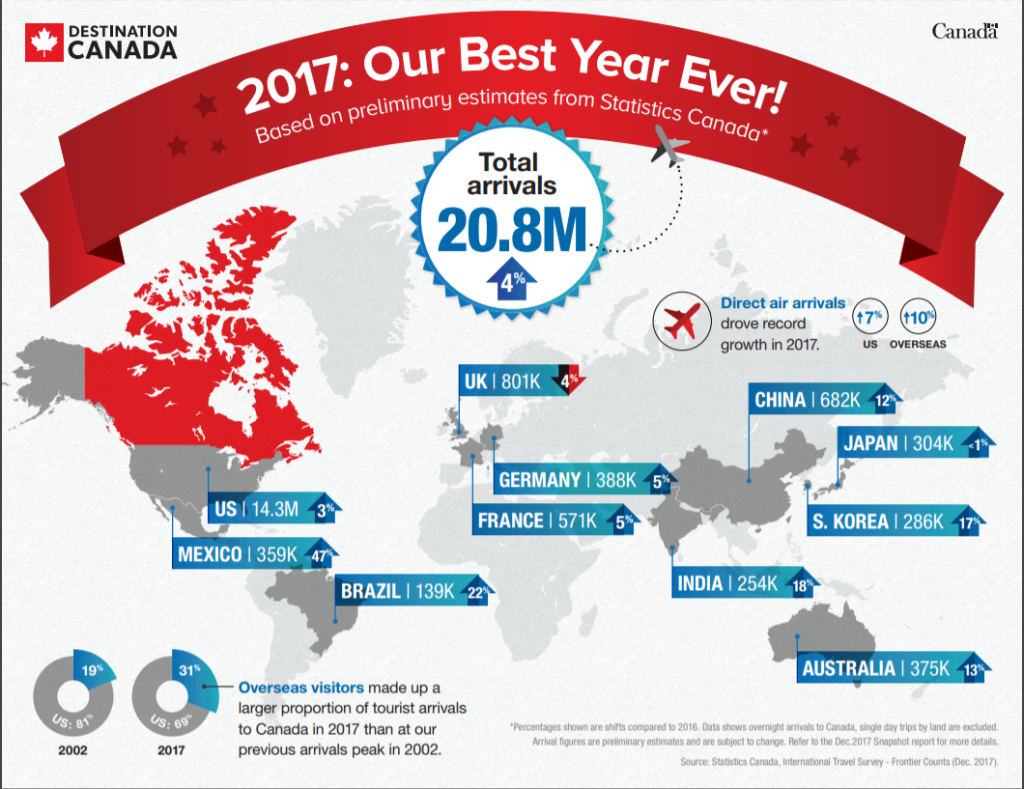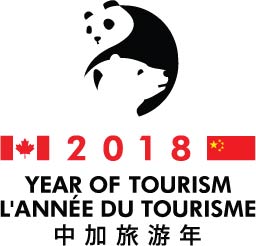In this special year dedicated to Canada-China Tourism, are you positioned to attract Chinese visitors to your Canadian destination?
2017 was Canada’s best year ever in terms of tourist arrivals, with a staggering 20.8 million visitors from around the world. Of that number, we had 682,000 arrivals from China – an increase of 12% on the previous year. So if you work in the Canadian tourism sector, you’re likely gearing up for the biggest season ever!

A recent survey found that the majority of Chinese travellers not only prefer to travel alone (independent from the ties of a travel agent), but they also prefer to have a detailed holiday plan before leaving, so make sure you’re part of it! But, whilst people are planning their trip to the land of the maple tree, are you in their itinerary?
''I want to be free from being forced into shopping malls by travel agents, where you can do nothing but shop.'' Qin – survey respondent
Get found by your visitors – be part of their travel plans
Chinese travellers are searching for authentic experiences. If you want to be part of their plans and allow them to experience your offer, make sure you get in front of them before they’ve even booked their flight. You need to be found on Baidu, their search engine. This requires:
- A well-translated landing page (even just a single page on your website detailing opening hours and a description) that can be found in China
- Well-localized content and keywords, which involves researching and localizing your content for your target audience.
What does ‘localized content’ actually mean?
Simply put, localized content is written for a specific geographic area in a language your audience can not only understand, but using words and expressions that are colloquial for them, and that are top of mind when searching online. It’s why we’d write ‘horseback riding’ for North American audiences, or ‘horse riding’ for British.

Well-localized content is also crucial for SEO: using the keywords that your audience is searching will help you get found. Accurate keyword localization guarantees better search engine results.
WeChat Marketing – The Tourism Industry Solution
Localized content also means being on your audiences’ preferred platform(s). Sure, Facebook is great if you’re looking to attract tourists from France. But if you want Chinese tourists (for whom Facebook and Twitter are blocked), ideally you’ll open a WeChat account, as this is China’s most popular app.
Social media is about engagement and community building. WeChat is a fabulous tool to allow you to build a community of followers interested in your offer, and inform people about your destination – be it helicopter tours, whale tours, train rides, museums, gardens, aquariums or hotels – they will share pictures and posts with their network, making everyone back home eager to know more and enjoy the same great experience!
The importance of WeChat is not limited to reaching people in China. When travellers land in Canada, WeChat is their first reflex to find information about their new adventure. They also use it to chat with family back home, filming items and asking friends what they want them to bring back. Money transfers are so convenient that it’s really easy to say, ‘send me $100 and I’ll buy it for you’. Now that many Canadian merchants offer the convenience of WeChat payments, travellers have the added confidence of being able to shop without having to use the limited currency they’ve brought along.















